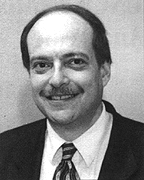Dr. Stephen R. Zukin has joined NIDA as director of the Division of Clinical and Services Research. As head of the division, Dr. Zukin directs and coordinates a broad program of human research initiatives on the etiology and clinical neurobiology of drug abuse; the medical conditions associated with drug abuse; the development and assessment of drug abuse treatments; and the impact of organizational, management, and financing patterns on the cost and effectiveness of drug abuse services.
Dr. Zukin comes to NIDA from the Albert Einstein College of Medicine of Yeshiva University in New York City where he is a tenured professor of psychiatry and neuroscience. While at Einstein, he also served as director of research at the Bronx Psychiatric Center and was an attending psychiatrist at Montefiore Medical Center in New York.
 Dr. Stephen R. Zukin
Dr. Stephen R. ZukinAs a research psychiatrist and neuroscientist, Dr. Zukin has focused his research on the mechanisms by which drugs alter brain function and behavior. At Einstein, his laboratory focused on clarifying the structure and function of brain NMDA (N-methyl-D-aspartate) receptors, which are prominently involved in drug abuse and schizophrenia. Previously, he had discovered the brain receptor site where phencyclidine and related drugs of abuse exert their effects.
Dr. Zukin received his M.D. from the Johns Hopkins School of Medicine in Baltimore and did his clinical training in psychiatry at Mount Zion Medical Center in San Francisco. In 1992, the American Psychiatric Association honored him with the Kempf Fund Award for Research Development in Psychobiological Psychiatry. That same year, a group of his papers on PCP receptors and multiple opiate receptors was designated a Citation Classic Award by the Institute for Scientific Information. In 1994, he was designated the Ritter Foundation Faculty Scholar in Schizophrenia Research at Einstein. Most of Dr. Zukin's 70 published scientific papers relate to his research on brain actions of phencyclidine-related drugs and the mechanisms of brain receptors involved in both drug abuse and schizophrenia.
